Plenary Sessions
The Pandemic Urbanism Symposium features three plenary sessions. Speaker details follow.
- Opening (9:00–10:00) Writing the next chapter: Possibilities of the post-pandemic city
- Mid-Day (12:45–1:45) Reshaping the Politics of Care
- Closing (4:30–5:30) Community engagement, research, and our paths forward
See full symposium schedule for additional sessions.
Writing the next chapter: Possibilities of the post-pandemic city
How can our urban narratives become more environmentally just, healthy, and inclusive?
Symposium introduction by Peter Dunn, PhD Candidate in Urban Design & Planning, University of Washington Moderated by Katherine Idziorek, PhD Candidate in Urban Design & Planning, University of Washington An all-too-familiar narrative has unfolded in our urban environments as communities worldwide struggle to regain footing while still wrestling with the first wave of the COVID-19 pandemic. Communities of color and disenfranchised peoples have been hit the hardest. Social determinants of health have concentrated populations with the highest risk of severe illness in places with limited access to the amenities and basic services promised by, but not equitably distributed throughout, the city. At the same time, we have also witnessed social innovation, collapsed timetables for critical projects, and the materialization of robust mutual aid networks virtually overnight: a hopeful glimpse of what is possible.
As planners, designers, policymakers, and other community creators in the built environment shape the post-pandemic landscape, how can we more fully realize the promise of the city in ways that address chronic inequities and dismantle structural injustices? How can we contribute to community empowerment and help to rewrite urban narratives to center values of health, inclusivity, and social justice?
Speakers
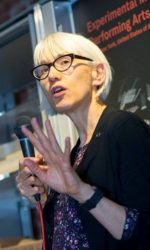
ANN FORSYTH
Ruth and Frank Stanton Professor of Urban Planning and Co-Director of the Master in Urban Planning Program, Harvard University Graduate School of Design
Trained in planning and architecture, Ann Forsyth works mainly on the social aspects of physical planning and urban development. The big issue behind her research and practice is how to make more sustainable and healthy cities. Forsyth’s current research focuses on developing healthier places in a suburbanizing world, with overlapping emphases on aging and planned communities.
She has contributed to three main areas of research and practice. First is documenting and assessing innovative and high-density planning and design in suburban/metropolitan areas. This includes research examining new towns as a whole and specific challenging issues: achieving walkability, planning higher density and affordable housing, supporting social diversity, and balancing social and ecological values. Second is work evaluating and proposing how the physical environment can improve health. She has explored physical activity and food environments, processes of densification, and the needs of different age groups, as well as translating research on health and environments into tools for practice. Forsyth has been active in developing and evaluating new instruments and measures using GIS, fieldwork, surveys, impact assessments, public participation processes, and evidence-based practice guidelines. Finally, she has been active examining how to connect research and practice. This includes understanding the different forms of research and investigation, and how research can inform the process and substance of planning.
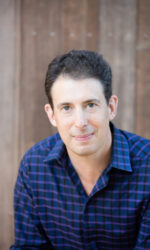
ERIC KLINENBERG
Helen Gould Shepard Professor of Social Science and Director of the Institute for Public Knowledge at New York University
Eric Klinenberg’s scholarly work highlights the ways in which the physical spaces where people interact facilitate trust, community-building, and the shaping of a democratic society. His research has also explored the phenomenon of solo living, the effects of climate change on the human experience, and the social dimensions of resilience. He is the author of Palaces for the People: How Social Infrastructure Can Help Fight Inequality, Polarization, and the Decline of Civic Life (Crown, 2018), Going Solo: The Extraordinary Rise and Surprising Appeal of Living Alone (The Penguin Press, 2012), Fighting for Air: The Battle to Control America’s Media (Metropolitan Books, 2007), and Heat Wave: A Social Autopsy of Disaster in Chicago (University of Chicago Press, 2002), as well as the editor of Cultural Production in a Digital Age, co-editor of Antidemocracy in America (Columbia University Press, 2019), and co-author, with Aziz Ansari, of the New York Times #1 bestseller Modern Romance (The Penguin Press, 2015). His scholarly work has been published in journals including the American Sociological Review, Theory and Society, and Ethnography, and he has contributed to The New Yorker, The New York Times Magazine, Rolling Stone, and This American Life.
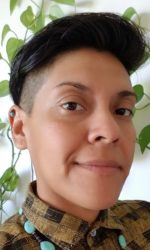
RÍO OXAS
Co-founder, RAKOK: Race. Acnestors. Health. Outdoors. Knowledge.
Río Oxas was born and raised in Tongva lands aka Echo Park in Los Angeles, their mother El Salvador and father in Guatemala. Río is a national speaker, educator, consultant for equity and racial justice and a student of life and joy. Río holds a Masters in Education in Social Justice and is a National Bicycle Safety Coach. Over the last twenty years Río has worked alongside Black Indigenous People of Color (BIPOC) communities to advocate for mobility, food, racial, environmental, and health justice. They are experienced in consulting, negotiating, and strategizing with government, firms, transit agencies, and organizations to help inspire and meet their own equity goals. They are the Co-founder of the family owned social enterprise RAHOK- Race. Ancestors. Health. Outdoors. Knowledge. RAHOK illuminates the interdependence of race, ancestral wisdom, health and the outdoors so that with love we may cultivate local ecosystems (neighborhoods) in which all beings experience care, compassion and connection. Río finds it critical that in this new era of “stay home” BIPOC who use public transit and essential workers are kept safe, healthy, given equitable resources and not criminalized. We must use this transformative moment to go beyond our imagination in creating a world that centers the well-being of our planet and marginalized relatives. Contact: riooxas@rahok.org
Reshaping the Politics of Care
The COVID-19 global pandemic is often referred to as “the great equalizer” but this is far from the truth. The public health emergency and subsequent economic crisis are exacerbating systemic inequalities. Grassroots community organizers and thought leaders on the frontlines of COVID-19 will talk about coalition building that (re)shapes accountability, policy, and politics around care; the interconnectedness of our systems, environment, and people; and centering future rural and urban possibilities around communities of color.
Plenary welcome by Lan Nguyen, PhD Candidate in Urban Design & Planning, University of Washington
Moderated by Bonnie Duran, Professor, Schools of Social Work and Public Health, University of Washington
Speakers
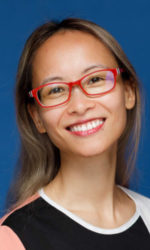
CHÂU NGỌC TRÂN / NIKKI CHÂU
Designer/ Community Organizer at SEA Unity (Southeast Asian Unity)
“Nikki” Châu, or Châu Ngọc Trân, is a child of the Phạm, Trần, and Châu families, a child of the foggy hills of the K’Ho, Churu, and Maa peoples, and a child of the waterways of Central Việt Nam that connect to the Coast Salish via the Pacific Ocean. Nikki is dedicated to the lifelong work of learning and advocating for a world without systemic, interpersonal, and internalized violence. She does UX Design and teaches yoga. She is an avid fan of xianxia, cats, durian, and instant noodle.
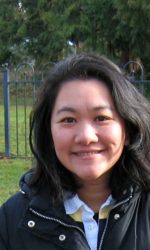
AURORA MARTIN
Co-Executive Director, Front and Centered
Aurora has become a social innovator, developing partnerships to re-imagine justice and invent a virtuous cycle of public good. Inspired by a commitment to build community and advance civil society, she is now the founder of popUPjustice, a social justice startup that aims to serve as a collaborative entity with various independent creatives and experts across sectors, incubating ideas at the intersection of technology, social justice, the arts, and popular culture. Most recently, Aurora served as an inaugural 2017 Innovation Fellow with the American Bar Association (ABA) to jumpstart a new knowledge sharing platform between scholars and advocates, www.ithinksam.org. She has been recognized on the list of emerging innovators in the ABA 2018 Women in LegalTech. In June 2018, she led the launch of the first Rural American Digital Lab (RADLab), a pilot project and partnership between Heritage University and Whitman College to bring digital STEAM (science, technology, engineering, art, math) opportunities to rural America. In addition to strategic consulting, she serves as partner or advisor to various cross-sector social impact startup entities, including ATJ Tech Fellows, Social Justice Film Institute, and the CWS International Incubation Lab. Aurora served up justice for nearly 20 years in Washington legal aid as a public interest lawyer who grew up from intern to executive director at Columbia Legal Services. During her tenure, she led Columbia’s transformation to become a creative social justice advocacy organization with a mission to integrate civil legal needs with civil rights, engaging in legal advocacy on behalf of people living in poverty through impact litigation, policy work, and multimedia education.

ROBIN NARRUHN
Co-Chair Community Health Board Coalition
Robin Narruhn is a nurse researcher and professor at Seattle University. She earned her PhD in Nursing Science from the University of Washington where she researched policies and practices that promote culturally safe reproductive care for women from Somalia. Her master’s degree was in community and global health. A nurse at the age of twenty, she has worked in high risk maternal child nursing and community health. She volunteers for the Pacific Island Health Board of Washington State, and is a founding member of the Marshallese Women’s Association. She is one of the co-chairs of the Community Health Board Coalition, which began with 9 ethnic health boards in 2017, currently with 14 health boards, the coalition’s work has conducted community based participatory research including a community mental health assessment, an assessment of community health priorities and work on mitigating the effects of the COVID 19 pandemic on immigrant and BIPOC communities.
Community engagement, research, and our paths forward
The symposium’s final session brings together four University of Washington faculty members who will share their community-based research and engagement as a basis for a discussion of possible ways forward.
Plenary welcome by Carrie Sturts Dossick, Professor and Associate Dean for Research, College of Built Environments, University of Washington
Moderated by Evan Carver, Assistant Instructional Professor, Environmental & Urban Studies, University of Chicago
Speakers
RACHEL BERNEY
Assistant Professor, Urban Design & Planning, University of Washington
Faculty page
Presentation abstract: Community engagement during COVID-19: Insurmountable disruption or a catalyst for greater justice?
RUBÉN CASAS
Assistant Professor, Culture, Arts and Communication, University of Washington, Tacoma
Faculty page
Presentation abstract: The Role of the Community-engaged, Urban-serving University in Times of Crisis
ELAINE FAUSTMAN
Professor, Institute for Risk Analysis and Risk Communication, School of Public Health, University of Washington
Faculty page
Presentation abstract: Assessing individual and community stress in Latinx communities
ANNE TAUFEN
Associate Professor, School of Urban Studies, University of Washington, Tacoma
Faculty page
Presentation abstract: Engaging Disparities: Race, Class, Trust in an Age of Civic Peril
